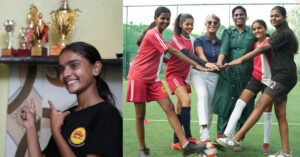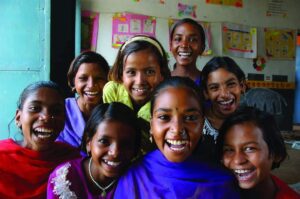How the Dalit Women of Bidar Are Fighting to Bridge the Wage Gap and Assert Their Rights
In Aurad taluk of Bidar district in Karnataka, thousands of women are being encouraged to strive for their rights related to land, livelihood and reproductive health. This is how!
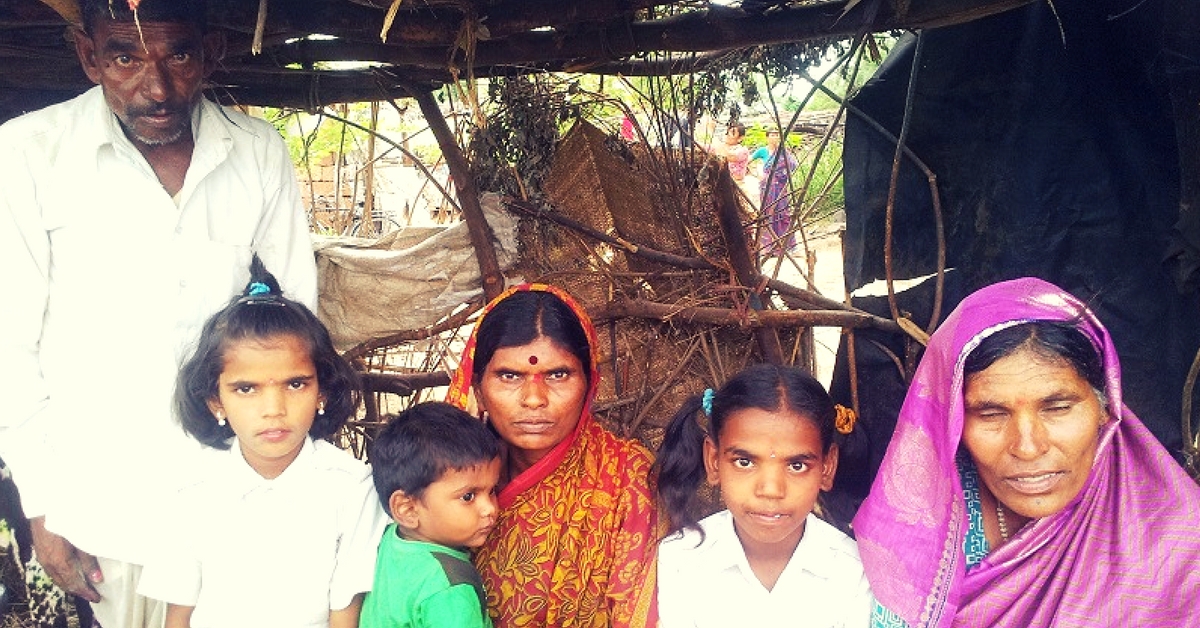
In Aurad taluk of Bidar district in Karnataka, thousands of women are being encouraged to strive for their rights related to land, livelihood and reproductive health. This is how!
Like elsewhere in India, the status of women in Bidar, a backward district in northern Karnataka, is poor. Do they have ownership of the homes they so lovingly nurture and the land they so painstakingly till? Walk into any home in Soralli village in Aurad taluk and pose this question to the woman of the house and this would be the standard reply: “Our home is registered in the name of my father-in-law or husband.” Inquire why she or her mother-in-law has not considered becoming independent or joint owners of the property and all you will get is thundering silence. Some will simply look at you with surprise. Whoever’s heard of women owning assets?
Ok, let’s talk about reproductive rights. Do the women have a say in the number of children they want? Or do they even have adequate knowledge and access to facilities that can enable them to make an informed decision? Chennamma, who has studied till Class Ten, had three children by the time she was 28. Will she adopt some fertility control measures to ensure that she doesn’t have any more offspring?
Instead of Chennamma, it’s her mother-in-law Tulsiamma who answers, “She is young and can’t have the operation just yet.”
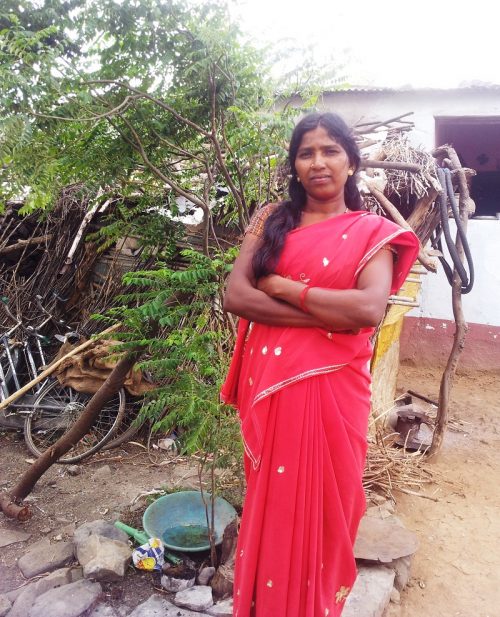
If Chennamma has her mother-in-law speak on her behalf then for Balamma it’s her husband, Eswara (both names changed), who takes all the important decisions, family planning included. “I had taken my wife to the government hospital where she was declared to be too weak to go through a surgery,” he informs. Balamma, who has seven children, is in better health now, he adds, but he has not taken her back for the sterilisation procedure yet. Why? He has no answer. His wife seems to be inclined to go through it but hesitates to speak up in his presence. Balamma’s neighbours narrate how her last two pregnancies had been very difficult but they had been unable to convince her to take a stand and get birth control.
From one unfortunate reality to yet another – when it comes to livelihood, once again, discrimination is widespread. In a semi-arid region like Bidar agriculture is difficult to practice. Moreover, the sizeable numbers of poor Dalit families that reside here do not own any cultivable land and make ends meet by working as contractual labour. Womenfolk are required to complete the household chores before heading out to toil in the fields all day long. Of course, for eight hours of back-breaking manual work they are paid a pittance, which is especially lower than what is paid to the men. Ask why no one has questioned the disparity in wages? The women do not have any convincing arguments to offer. While a few do state that they have raised the issue of unequal compensation, according to them, the men feel that their work is “simpler and lighter”. As is often the case, many of these women are conditioned to believe that their contribution, especially on the work front, is of lesser value than the men.
The truth, however, is quite the opposite. Fact is that women are central to the survival of the family and, consequently, the larger community. Be in domestic activities, care-giving of children or the elderly, food and nutrition security or augmentation of the household income, their involvement is imperative for ensuring overall growth and prosperity. Fortunately in one block of Bidar at least, the wheels of change are in motion. As part of a unique initiative implemented across 68 villages of Aurad taluk, thousands of women are being encouraged to strive for their rights related to land, livelihood and reproductive health.
Mohammed Siraj, programme officer of Myrada, a non-profit organisation that works with marginalised communities in Karnataka, reveals, “We are focusing on a rights-based approach to achieving food and nutritional security and securing the well being of the rural poor. Women perform multiple activities like agricultural labour, raising children and maintaining their homes and families. So effectively they do more work than men. Naturally then, it’s critical that they remain healthy and empowered. With an idea to boost their levels of awareness we provide them with information on various topics like reproductive and land rights and social entitlements such as the Mahatma Gandhi National Rural Employment Guarantee Act (MGNREGA) or the Rajiv Awas Yojana. However, it’s going to be slow and long drawn journey towards transformation.”
Through concerted awareness generation, Myrada has been trying to create an ambience for transition. And enabling this to happen are the Community Resource Persons (CRPs), an all women group of activists, who have been trained to reach out to the womenfolk.
Remark Ashalatha and Suzanna, the appointed CRPs for Wadgaon village, “We push women to see themselves as critical to the food security of their family because they are important actors in the process of bringing food from farm to mouth. They are producers, procurers and providers. So they need to eat a balanced diet and keep a check on their health. But it’s easier said than done. Traditionally, women accord themselves the least priority when it comes to consuming nutritious food. As we keep repeating our messages time and again, many women – and some men too – have started paying heed to the essence of our recommendations. But the majority comprises people like Eswara who discourage us from speaking to their spouse. There have been instances when we haven’t been allowed to enter homes and have been threatened. Nevertheless, we continue to perform our tasks.”
It’s their diligent coaching that has resulted in a fine kitchen garden in Chennamma’s backyard today. She may not have understood their messages related to reproductive rights but has certainly realised the benefits of having an economical source of nutrition.
In fact, she is among the few women in the village who are growing their own tomatoes, brinjal, mint and curry leaves and have managed to improve their own health as well as their children’s.
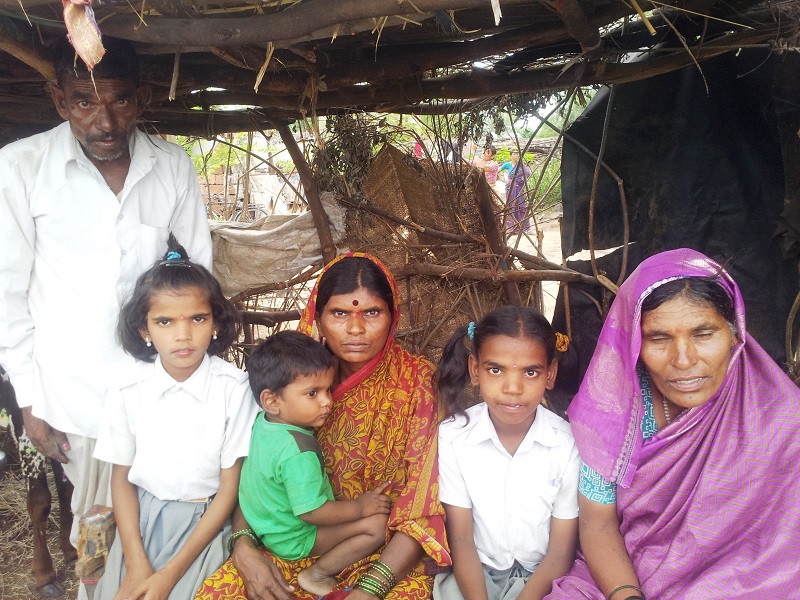
Apart from knowledge dissemination, a Community Managed Resource Centre has come up in Wadgaon and is being successfully managed by an executive board that represents more than 1500 women belonging to 100 Self-Help Groups (SHGs) in the taluk. The centre runs a seed bank besides being a nodal point for several other activities being conducted under the initiative.
The other aspect that has been dealt with under the intervention is the improvement of employment opportunities for women. “Gender based wage disparity, which is a universal phenomenon, exists in Aurad too. When we talk to women about their MGNREGA entitlements, we tell them to negotiate for better wages. However, we know it will take time to alter attitudes,” concedes Siraj. Nonetheless, women have been linked to income generation activities, be it the MGNREGA, the production of a nutritional supplement through SHGs or tailoring. In fact, SHG members who are making the NutriMix powder that is distributed to severely malnourished children in the community have not just been responsible for boosting the health indicators of the little ones in the area but also their family’s income.
With a healthy sex ratio of 956 women per 1000 men, which is above the national average of 940, and a competent female literacy rate of 61.5 per cent, Bidar has all the right elements to help it become a more gender just district. The starting point has to be a change in the mindset of women and this change has to come from within.
All pictures: Pushpa Achanta\WFS
Like this story? Or have something to share? Write to us: [email protected], or connect with us on Facebook and Twitter (@thebetterindia).
This story made me
- 97
- 121
- 89
- 167
Tell Us More
We bring stories straight from the heart of India, to inspire millions and create a wave of impact. Our positive movement is growing bigger everyday, and we would love for you to join it.
Please contribute whatever you can, every little penny helps our team in bringing you more stories that support dreams and spread hope.







